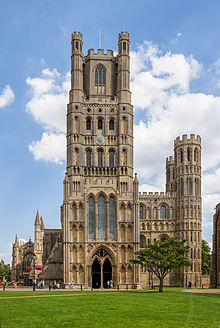|
Posted: 06 Sep 2013 08:17 AM PDT
Section 1. All
legislative authority resides in Almighty God and is, therefore, vested in
Almighty God by Almighty God.
Isaiah 33:22 and James 4:121
declare Yahweh2 is the exclusive legislator. There are no others. Anyone
who claims the title of legislator (particularly when his “laws”—whether
commandments, statutes, or judgments—are inconsonant with Yahweh’s) is a
usurper and is perpetuating the same anarchy initiated by Adam and Eve.
Anarchy is defined as “a state of society without government or law.”3
Because all legitimate law originates with Yahweh, any “legislation” not in
accord with His amounts to an act of anarchy against God Almighty and,
therefore, His kingdom.
Yahweh is the only lawgiver because as Creator
and Sovereign He is the only one with the authority to determine what is good
and what is evil. This is so, not because we recognize it as such, but
because He has so declared it.
Because there is only one true God, there is
only one standard for morality. As the source of morality, Yahweh is the
source of all true law and, therefore, holds the monopoly on
legislation.Because legislation enacts morality, morality and legislation are
indivisible.
Any legislation antithetical to Yahweh’s is
tantamount to calling good evil and evil good.4 It amounts to a
usurpation of His place as God. When man rejects Yahweh’s standard of
morality, he invariably makes legal what God has made unlawful and illegal
what He has made lawful, making a mockery of His law. Case in point: All
governments that have not recognized Yahweh’s exclusive legislative
authority.
His triune moral law cannot be improved upon
because it is perfect.5 It is unlawful for man to amend or repeal
it in whole or in part.6 Because Yahweh’s moral law is perfect,
any endeavor to improve upon it is an attempt to dethrone Yahweh and
commandeer His throne.
Section 2.
Because it is impossible for man to make law, he is either a usurper or
merely an administrator of Yahweh’s law. Administrators (not to be confused
with judges) are law finders, not lawmakers. An administrator’s
responsibility is to implement Yahweh’s law (government) here on earth at all
levels of society—individually, domestically, and civilly. Every Christian
man should be an administrator of Yahweh’s law on at least the first two
levels.
Administrators represent Yahweh, not the
people. It is their duty to search out the law of Yahweh as it applies to any
particular situation, and then to teach and implement the law(s) appropriate
to that situation or need.7
This does not mean supplementary stipulations
cannot be implemented, provided
they are consonant with Yahweh’s prescribed law. For example, a father, who
governs his family by God’s authority and with His law has the liberty to
implement house rules, such as hygienic and household chores. The same is
true on all other levels of society.
Today’s technology did not exist when Moses
codified Yahweh’s moral laws. Therefore, additional stipulations are required
for these new conditions under
and in accord with God’s case laws (His statutes and judgments).
Provided such regulations do not conflict with Yahweh’s moral law, they are
perfectly acceptable. Biblical precedents are found in Jeremiah’s land deeds,8
Rachab’s patriarchal requisites,9 and Mordechai’s Purim
celebration,10 none of which are directly provided for in the
commandments or statutes.
Section 3.
Civil administrators shall be composed of Biblically qualified men11
(either twenty, twenty-five, or thirty years up to fifty years of age12),
who will remain such so long as they aspire to the position,13 and
provided they remain Biblically qualified.
Administrators are to be nominated by other
men from their immediate community who can personally attest to the nominees’
Biblical qualifications. When there are more candidates than positions,
nominees shall be elected by Yahweh via casting lots.14
The number of administrators shall be
determined by each and every local community, as their needs require.
Communities would be well-advised to consult the numerical model for judges
in Exodus 18 as a guide for administrators as well.15
Civil administrators (like judges) should be
compensated for their time and services from tithes and freewill offerings.16
Section 4. If,
at any point during his tenure, a civil administrator becomes Biblically
unqualified, it is then incumbent upon the men of his community to remove him
from office, lest the community become complicit in any misuse of his
position as administrator.17
__________________________
1. “For YHWH is our judge, YHWH is our
lawgiver, YHWH is our king….” (Isaiah 33:22) “There is [only, NASB] one
lawgiver…” (James 4:12)
2. YHWH, the English transliteration of the
Tetragrammaton, is most often pronounced Yahweh. It is the principal Hebrew
name of the God of the Bible and was inspired to appear nearly 7,000 times in
the Old Testament. It was unlawfully deleted by the English translators. In
obedience to the Third Commandment and the many Scriptures that charge us to
proclaim, swear by, praise, extol, call upon, bless, glorify, and hold fast
to His name, we have chosen to memorialize His name here in this document and
in our lives. For a more thorough explanation concerning important reasons
for using the sacred name of God, see “The Third Commandment.”
3. Random
House Webster’s College Dictionary, s.v. “anarchy” (New York, NY:
Random House, Inc., 2000) p. 48.
4. “Woe unto them that call evil good, and
good evil; that put darkness for light, and light for darkness; that put
bitter for sweet, and sweet for bitter!” (Isaiah 5:20)
5. “The law of YHWH is perfect, converting the
soul: the testimony of YHWH is sure, making wise the simple. The statutes of
YHWH are right, rejoicing the heart: the commandment of YHWH is pure,
enlightening the eyes. The fear of YHWH is clean, enduring for ever: the
judgments of YHWH are true and righteous altogether. More to be desired are
they than gold, yea, than much fine gold: sweeter also than honey and the
honeycomb. Moreover by them is thy servant warned: and in keeping of them
there is great reward.” (Psalm 19:7-11)
6. “Ye shall not add unto the word which I
command you, neither shall ye diminish ought from it, that ye may keep the
commandments of YHWH your God which I command you.” (Deuteronomy 4:2)
7. “For Ezra had prepared his heart to seek
the law of YHWH, and to do it, and to teach in Israel statutes and
judgments.” (Ezra 7:10)
“And Ezra the scribe stood upon a pulpit of
wood … [and] opened the book in the sight of all the people…. Also … Levites,
caused the people to understand the law…. So they read in the book in the law
of God distinctly, and gave the sense, and caused them to understand the
reading.” (Nehemiah 8:4-8)
8. Jeremiah 32:9-14
9. Jeremiah 35:5-19
10. Esther 9 11. Exodus 18:19-21; Deuteronomy
1:13-17, 17:15-20; 2 Samuel 23:3; 2 Chronicles 19:5-8; Jeremiah 30:21; Romans
13:1-4; 1 Timothy 3:1-13; and Titus 1:5-9.
12. Numbers 4:3, 30, 47, 8:23-24; and 1
Chronicles 23:3, 24, 27. (I am unable to reconcile these ages. If anyone has
an explanation, please share your thoughts with me.)
13. “This is a true saying, If a man desire
the office of a bishop, he desireth a good work.” (1 Timothy 3:1)
“The elders which are among you I exhort….
Feed the flock of God which is among you, taking the oversight thereof, not
by constraint, but willingly; not for filthy lucre, but of a ready mind;
neither as being lords over God’s heritage, but being ensamples to the
flock.” (1 Peter 5:1-3)
14. “Thou shalt in any wise set him king over
thee, whom YHWH thy God shall
choose: one from among thy brethren shalt thou set king over thee:
thou mayest not set a stranger over thee, which is not thy brother.”
(Deuteronomy 17:15)
“And when Samuel had caused all the tribes of
Israel to come near, the tribe of Benjamin was taken [by lot] … the family of
Matri was taken, and Saul the son of Kish was taken…. And Samuel said to all
the people, See ye him whom
YHWH hath chosen….” (1 Samuel 10:20-24)
“The lot is cast into the lap; but the whole
disposing thereof is of YHWH.” (Proverbs 16:33)
“The lot causeth contentions to cease, and
parteth between the mighty.” (Proverbs 18:18)
“And they appointed [put forward, NASB] two,
Joseph called Barsabas…. And they prayed, and said, Thou, Lord, which knowest
the hearts of all men, shew whether of these two thou hast chosen…. And they gave forth their
lots; and the lot fell upon Matthias; and he was numbered with the eleven
apostles.” (Acts 1:23-26)
15. “Moreover thou shalt provide out of all
the people able men, such as fear God, men of truth, hating covetousness; and
place such over them, to be rulers of thousands, and rulers of hundreds,
rulers of fifties, and rulers of tens.” (Exodus 18:21)
16. “…give the portion of the priests and the
Levites, that they might be encouraged in [devote themselves to, NASB] the
law of YHWH.” (2 Chronicles 31:4)
“…the labourer is worthy of his hire….” (Luke
10:7)
“For for this cause pay ye tribute also: for
they are God’s ministers, attending continually upon this very thing. Render
therefore to all their dues: tribute [tax, NASB] to whom tribute is due;
custom to whom custom; fear to whom fear; honour to whom honour.” (Romans
13:6-7)
“If we have sown unto you spiritual things, is
it a great thing if we shall reap your carnal [material, NASB] things?…. Do
ye not know that they which minister about holy things live of the things of
the temple? and they which wait at the altar are partakers with the altar?
Even so hath the Lord ordained that they which preach [or minister] the
gospel should live of the gospel. (1 Corinthians 9:11-14)
“Let the elders that rule well be counted
worthy of double honour, especially they who labour in the word and doctrine.
For the scripture saith, Thou shalt not muzzle the ox that treadeth out the
corn. And, The labourer is worthy of his reward.” (1 Timothy 5:17-18)
17. 1 Samuel 14:26-45; 1 Chronicles 21:1-14; 1
Timothy 5:22
Related Posts:
|







 "
" (Francis
left. Is that an Eye of Horus sign?)
(Francis
left. Is that an Eye of Horus sign?)  ("Dignity" ? Are they serious?)
("Dignity" ? Are they serious?) 


